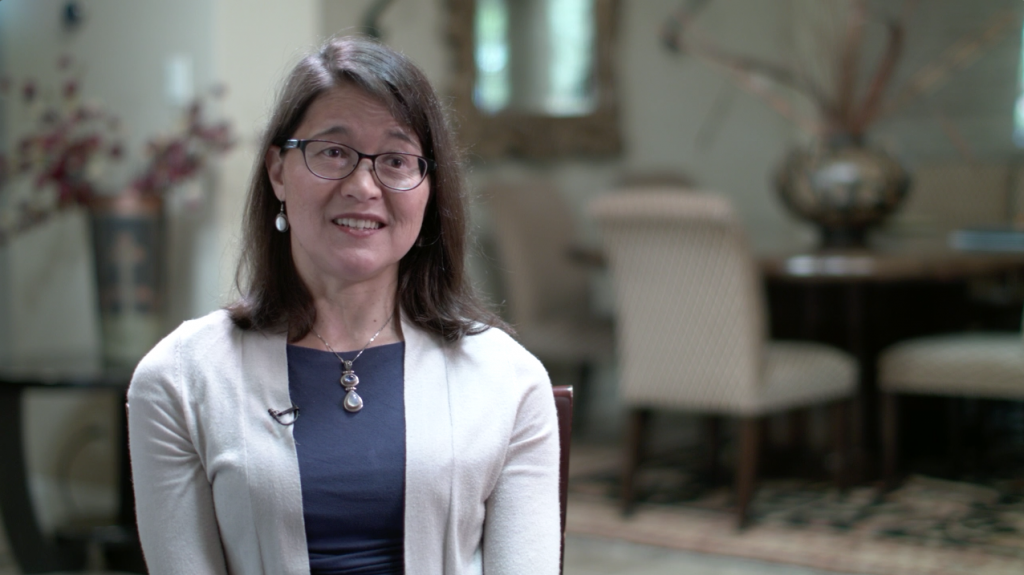Grief in the time of COVID-19
by Bereavement Coordinator Isabel Stenzel, LCSW, MPH
During these unprecedented times brought on by the COVID-19 pandemic, the Mission Hospice community is sheltering in place along with people across the globe. For those who have lost a loved one, physical isolation can intensify the grief experience. When we feel fear and anxiety, such as during this pandemic, we naturally yearn for security by wanting our loved ones close to us. Missing your loved one can heighten feelings of self-doubt and even lower self-confidence. You may wish they were here to share in this time and wonder what they would do. Yet there can also be a sense of relief that your loved one does not have to cope with this pandemic, including concerns about caregiving and seeking medical care at this time.
 Even if you haven’t lost a close loved one, it is understandable to feel grief at this time. Many have experienced disappointments with cancellations of plans. We miss our friends, grandchildren, and we miss touching and hugging our loved ones. We’ve also experienced the loss of choices, freedom, job security, financial security, and routine, among many things. We’ve lost freedom to engage with groups; it will take time to feel safe again in crowds. We have lost our illusion of full control. Naturally, we might react to these losses with denial, defiance, or irritability, judgment, and frustration towards others.
Even if you haven’t lost a close loved one, it is understandable to feel grief at this time. Many have experienced disappointments with cancellations of plans. We miss our friends, grandchildren, and we miss touching and hugging our loved ones. We’ve also experienced the loss of choices, freedom, job security, financial security, and routine, among many things. We’ve lost freedom to engage with groups; it will take time to feel safe again in crowds. We have lost our illusion of full control. Naturally, we might react to these losses with denial, defiance, or irritability, judgment, and frustration towards others.
Grief is more complex now, especially for those with underlying depression or anxiety. Having traditional funerals and taking care of practical affairs are not possible. Of course, losing a loved one to COVID-19 and not being able to be with them physically at the end of life is devastating. There is collective grief with the enormity of loss around the world to this virus, especially among the less privileged.
Most importantly, this pandemic forces us to look at our vulnerability and contemplate the possibility that we, too, can catch this virus, and could die. This fear motivates us to stay home. At Mission Hospice, we know that death is a natural part of life. Yet modern health care has altered our relationship with death. Death feels more controllable, distant, something that happens at advanced ages or to the unlucky. Yet we are all vulnerable.
This epidemic is a chance to ponder not only our own mortality, but our lives. Have we lived well? What is our legacy? What is left unfinished, and how will I live my life going forward to fulfill my values and goals? Consciously and deliberately practicing personal death awareness can make death less scary, and help us face death with curiosity, wonder, and surrender, rather than fear and avoidance.
For anyone bereaved, grief may feel like it is “on hold” until sheltering is lifted. And many of the choices we have that serve to distract us from grief and help us feel alive are difficult: going out to movies, hanging out with friends, shopping, and traveling. Having something to look forward to can help in grief; right now, we are all in a holding pattern, waiting with uncertainty when this will be over. This all asks us to be patient.
In grief it can be helpful to take turns focusing on grief and then setting it aside. Even at home, we can find ways to honor our loved ones by creating an altar, lighting a memory candle each day, journaling, and reviewing photos. Talking to our loved ones in our heads is natural and can offer comfort. What would he say? What would she want for you? Being stuck at home and feeling bored forces us to feel… feel the grief, acknowledge it, allow it. We cannot run away from it.
Some people stuck at home are cleaning closets and experiencing an upsurge of grief with so many reminders. Yet we can also focus on chores, cooking, reading, enjoying music, watching shows and working on projects. We must be mindful of the tendency towards negative thoughts and balance them with positive thoughts — by consciously choosing to focus on sources of hope, blessings, and gratitude in our lives despite our grief.
Loneliness is a typical emotion in grief, and it can be heightened during sheltering in place. One way to look at grief is that grief is a form of love. The pain of loss is in direct proportion to the love we have felt for the person. The love we feel for our special person who died never dies, but it changes. Likewise, so many things we love have changed because of COVID-19. Our love of hugs and close-togetherness has been altered. Thankfully, we can still socialize remotely — by phone and the internet.
Sharing grief can reduce its intensity, yet we have to find creative ways to connect to others. We can meditate on how many ways we are still interconnected with others: the food we eat was picked by farmers, packaged by workers, delivered by truck drivers, and sold by store clerks. The medication we take was prepared by a chain of helpers, and the news we hear comes from a long list of researchers and journalists. Even if it feels like it, we are never truly alone! And, Mission Hospice staff are still available to answer questions and provide support. Our grief support offerings include online support groups as well as individual grief counseling by phone and video.
Grief is one of life’s hardest experiences. Ultimately, love is the strongest antidote to grief. Allowing love, enduring love, honoring love, and passing it on is what heals grief. When the energy of grief permits, reaching out and helping others less fortunate can keep us connected. We see this inspiring generosity all around us during this pandemic.
As Penny Nixon noticed, “Love spreads more quickly than any virus ever could.”

